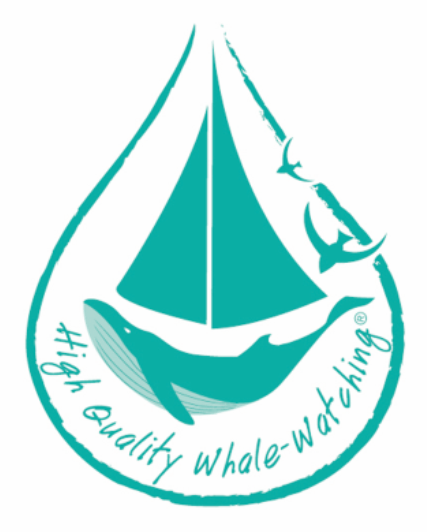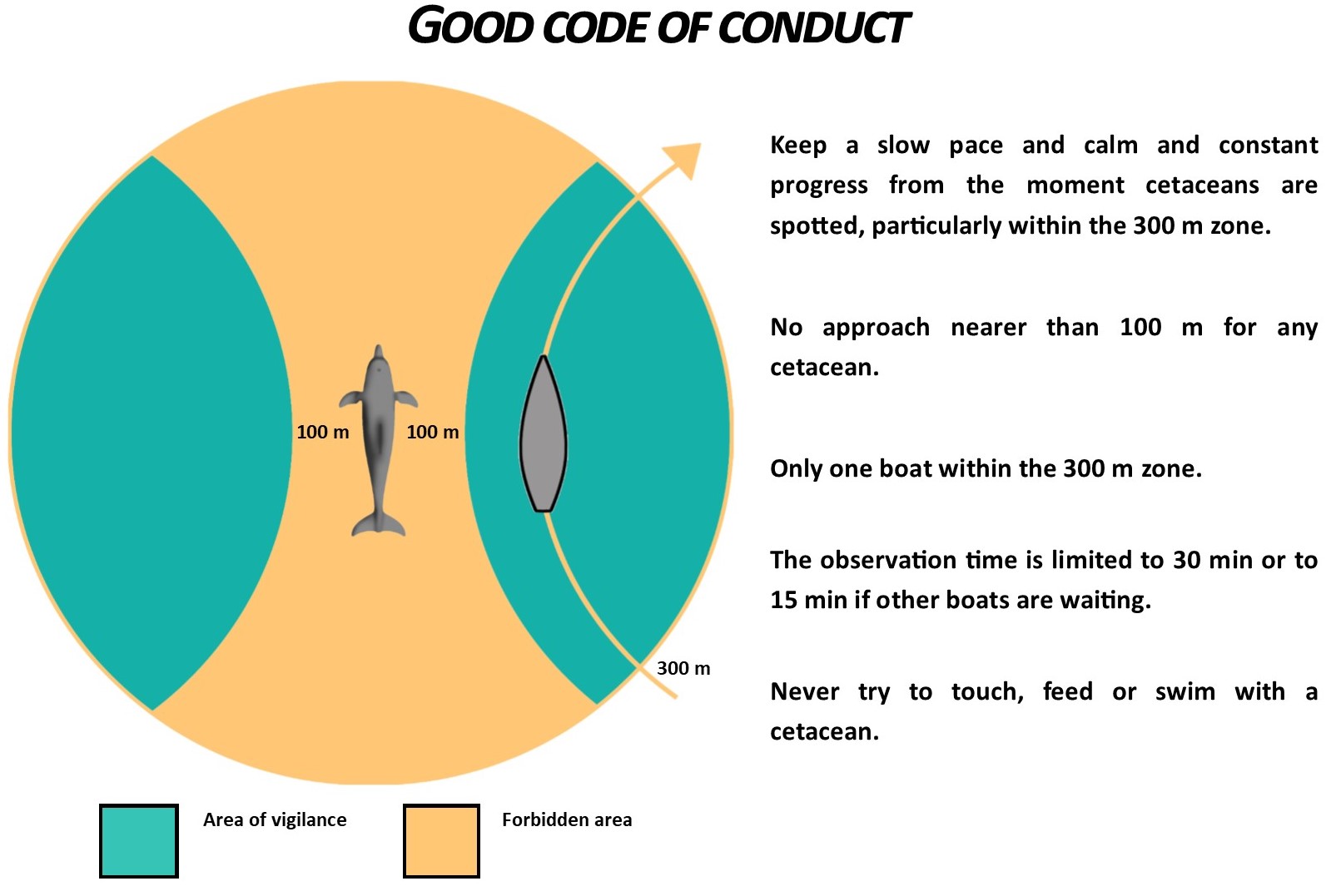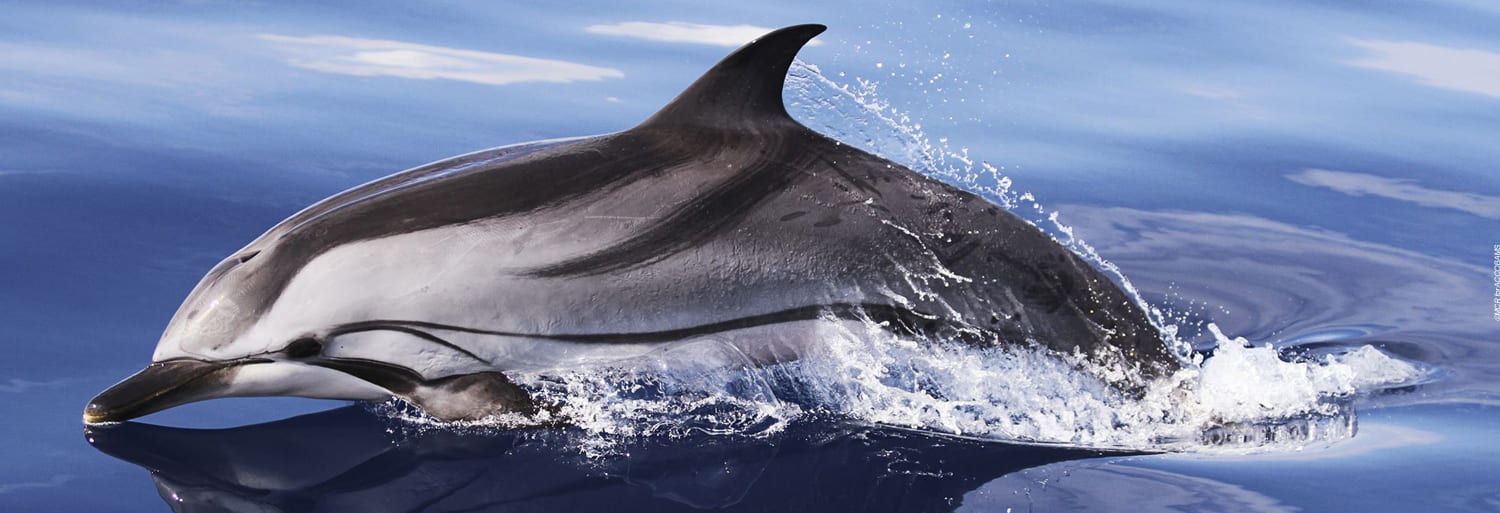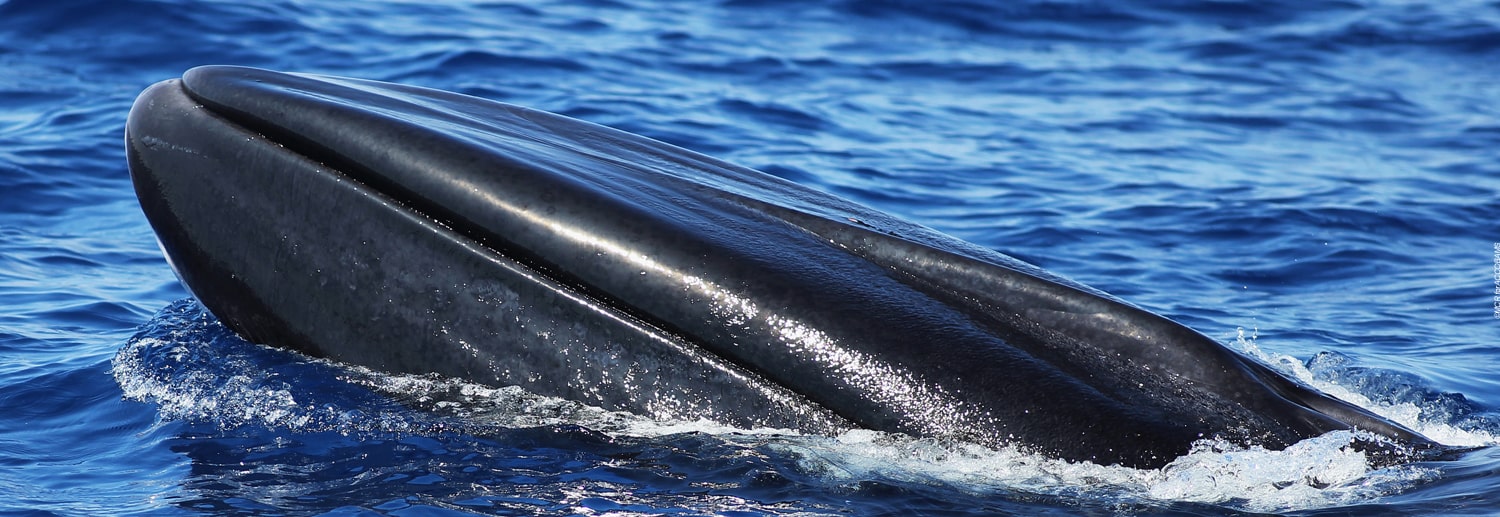High Quality Whale Watching® Certificate
Since 2004, several studies have shown that commercial whale-watching activities are increasing in the Mediterranean, particularly in North-Western region.
Aware of these challenges, ACCOBAMS, the Pelagos Sanctuary, several Non-Governmental Organizations (NGOs) and whale-watching operators collaborated for the creation of a consultative and voluntary management tool to ensure the sustainability of these activities: the “High Quality Whale-Watching®” Certificate.
 | The “High Quality Whale-Watching®” Certificate is an ACCOBAMS registered trademark with its logo and the regulations governing its use, which includes a Code of Good Conduct. It has been developed in collaboration with the Pelagos Agreement. |
The “High Quality Whale-Watching®” Certificate aims at encouraging the implementation of good practices and sustainable know-how by whale-watching operators involved in initiatives fostering quality and environmental responsibility.

Any whale watching operator can apply for the “High Quality Whale Watching®” Certificate to the national entity in charge of delivering the certificate. The operator will have to undertake a 3-days training program aiming at:
- giving added value to the concerned operators’ trips;
- promoting quality service and an ecologically sensible approach with the public;
- restricting the impacts of the activity on cetaceans and helping protect them; thus
- ensuring that commercial whale watching has a sustainable future.
Three ACCOBAMS Parties have currently implemented the “High Quality Whale Watching®” Certificate:
- France in July 2014 through the French NGO “MIRACETI“
- The Principality of Monaco in February 2015 through the Monegasque Association for the Protection of Nature
- The “High Quality Whale Watching®” Certificate is also implemented in Italy since 2019 through the CIMA Research Foundation and within the framework of the EcoSTRIM project (link), thanks to the funds of the INTERREG Italy-France Maritime Program 2014-2020 of the EU.
“High Quality Whale-Watching®” Certificate Training Program |
Identification, physiology and study of cetacean populations in the Mediterranean Legal issues on species conservation, ACCOBAMS and Pelagos presentations Code of Conduct Scientific protocol of observations to be applied by operators Presentation and identification of other marine species Noise and pollution: issues and how to limit the impacts |
Link: Website dedicated to the HQWW® in France
Link: Website dedicated to the HQWW® in Italy





